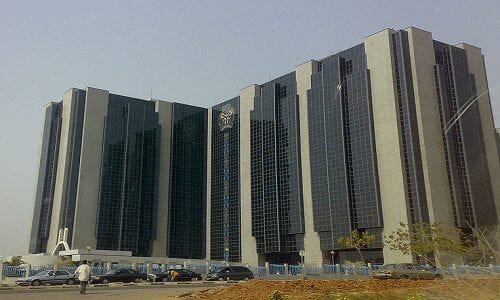The Central Bank of Nigeria has warned banks against indiscriminate dismissal and blacklisting of their staff, which it said hardly follow due process in recent times.
The CBN said it has observed that details of cases for which bank staff were blacklisted were no longer limited to cases of fraud and forgeries as originally intended, but had been erroneously extended to include cases like lateness to work, abandonment of duty, etc.
CBN said the inclusion of these other cases negates the intent and basis for blacklisting. “Blacklisting” is in furtherance to the requirements and provisions of Section 48, sub-section 4 of BOFIA CAP B3, LFN 2004 which states: “Any person whose appointment with a bank has been terminated or who has been dismissed for reasons of fraud, dishonesty or convicted for an offence involving dishonesty or fraud shall not be employed by any bank in Nigeria,” said Tokunbo Martins, CBN Director, of Banking Supervision in a letter to all banks.
In the letter titled, “Review of Operational Guidelines for Blacklisting” Martins said a blacklisted person CAN ONLY be delisted upon:” CBN’s issuance of a Delisting Order consequent upon a Court’s Order or request from the financial institution following CBN’s concurrence to the motion for reconsideration.”
She further warned that if determined that due process was not followed or the offence listed was not a blacklistable offence, the CBN will sanction the erring financial institution for not adhering to the provision of this guideline as empowered by Section 60 of BOFIA.
In the letter pasted on the CBN website, Martins said the reviewed guidelines followed the spate of petitions for the reversal of blacklisted staff by banks due to failure to comply with the process of investigation and granting of fair hearing to erring staff before forwarding their names for blacklisting.
The Guidelines provide the procedures for forwarding names to the CBN for inclusion in the Register of terminated, dismissed or convicted staff of banks and other financial institutions on the grounds of fraud, forgery and dishonesty.
The CBN maintains a register called the “blackbook” containing names and details of such staff that were dismissed or terminated, in line with Section 48 (4) of BOFIA 2004. This idea was originated by the Nigeria’s Bankers’ Committee at its meeting of December 14, 1982 which decided that a register be kept of staff dismissed on grounds of fraud and acts of dishonesty.
Every individual whose name is listed in the “blackbook” is barred from holding any employment within the financial system in Nigeria.
Martins therefore warned that going forward, each financial institution must forward the returns on dismissed or terminated staff (including temporary and contract) on grounds of frauds and forgeries to the CBN along with a declaration from the bank that it followed due process before arriving at the decision, and signed by the Managing Director.
The CBN would then review the documents and establish that due process was actually followed after which the Head, Bankers’ Committee upon confirmation would subsequently blacklist the persons.
“A blacklisted person CAN ONLY be delisted upon: CBN’s issuance of a Delisting Order consequent upon a Court’s Order or a request from the financial institution following CBN’s concurrence to the motion for reconsideration.
“If the CBN determines that due process was not followed or the offence listed is not a blacklistable offence, the CBN will sanction the erring financial institution for not adhering to the provision of this guideline as empowered by Section 60 of BOFIA,” Martins warned.
“Banks and other financial institutions should note that it is their responsibility to report names of staff terminated/dismissed on grounds of Fraud and Forgeries to the CBN and are cautioned against the dangerous practice of advising such staff to “simply resign”. If discovered, the CBN will regard this with even higher severity and the financial institution be sanctioned accordingly.”
BusinessDay































